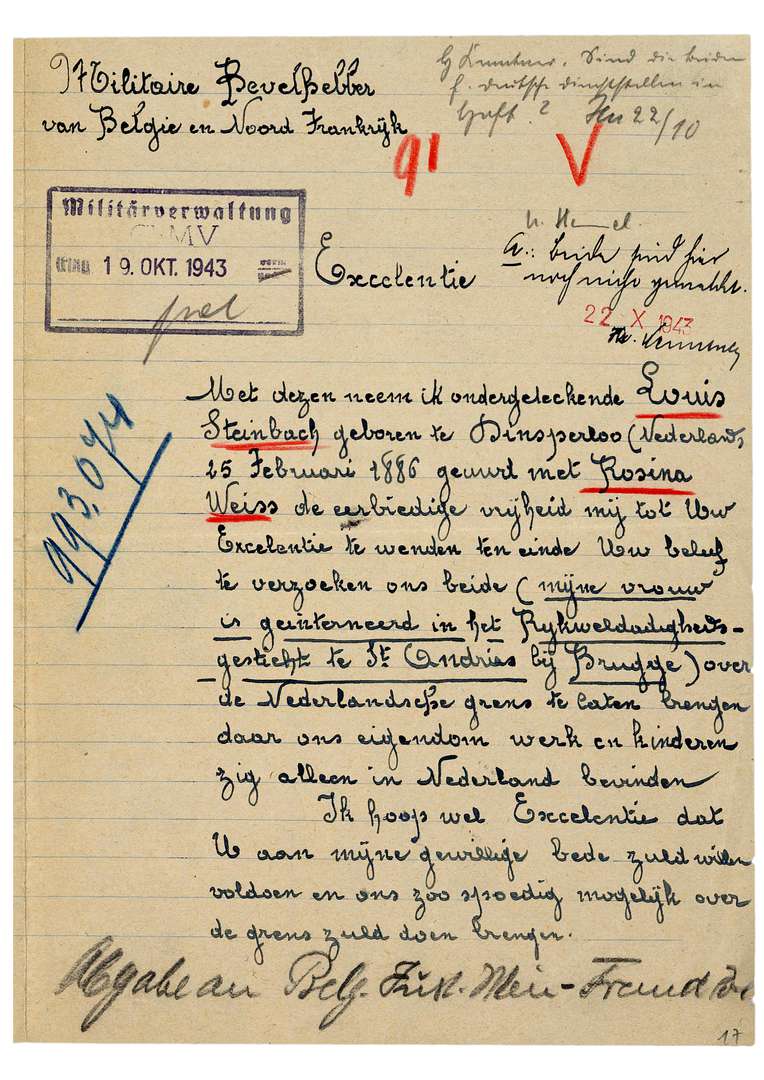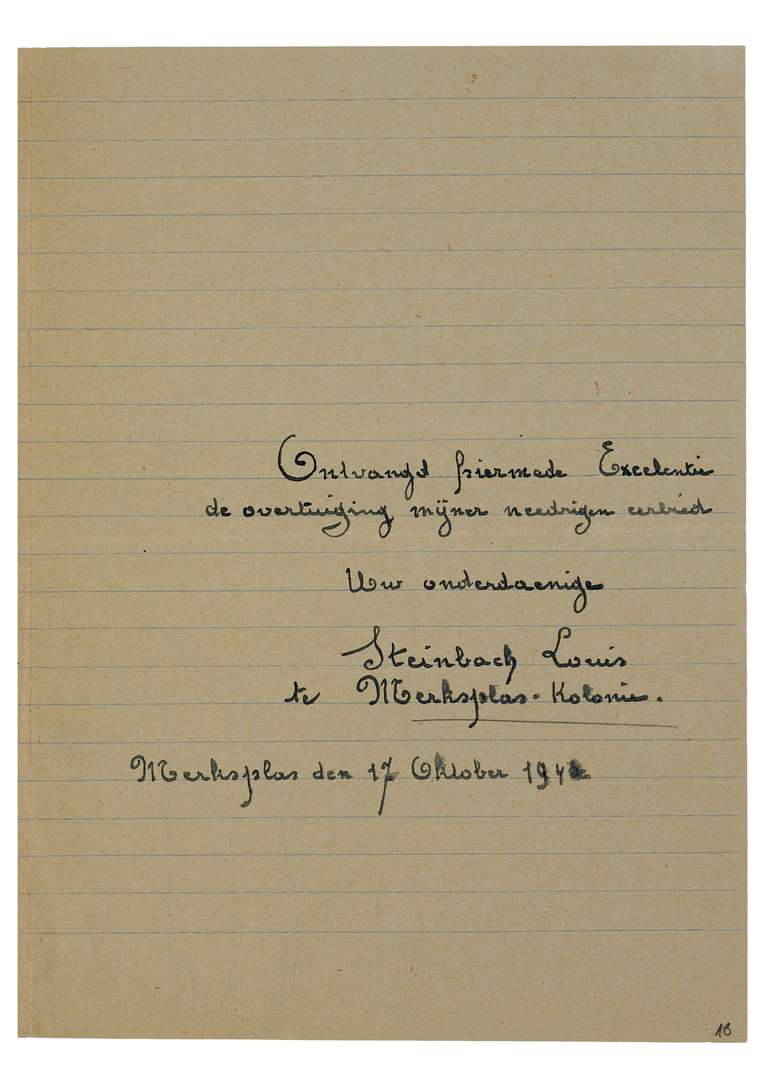A life in danger for years on end
Louis Steinbach, full name Antonius Lodewijk Steinbach, was a native of the Netherlands and, together with his wife, Rosina Weiss, had three sons and three daughters. The first son was born in 1905 in Germany, while all the other children were born in the Netherlands. A musician by profession, Louis Steinbach also traded in horses and carpets to earn a living, for which purpose the family travelled through the Netherlands, Belgium and Germany.
From the mid-1930s and, in particular, since the occupation of the Netherlands and Belgium by the German Reich in 1940, it became increasingly difficult for him to ply his trade and keep in contact with his children, who had meanwhile become adults, and their families. In July 1943 the Belgian municipality of Hasselt entered the couple in the aliens register while they were travelling from Eindhoven to visit relatives. On 10 September Louis Steinbach was interned in the Merksplas Colony near Hoogstraten, on the border with the Netherlands, his wife in a welfare facility in St Andries near Bruges. Founded in the nineteenth century as charitable welfare centres for the poor, both facilities were turned into prisons and later, under the German occupiers, served as transit camps for various groups of prisoners.
In numerous letters, the couple and one of their sons requested that they be allowed to leave Belgium for the Netherlands. On 18 November 1943 they were handed over to the Dutch police at Woestweezel. This enabled the couple to escape the deportation of Sinti and Roma from Belgium to the Auschwitz-Birkenau concentration and extermination camp. But they had to fear for their lives a second time: on 16 May 1944 the couple were seized during a raid in Amsterdam for the same deportation purpose. It is not known how they succeeded in evading deportation via the Westerbork transit camp. Two of their children were deported along with their families via Mechelen to Auschwitz.









